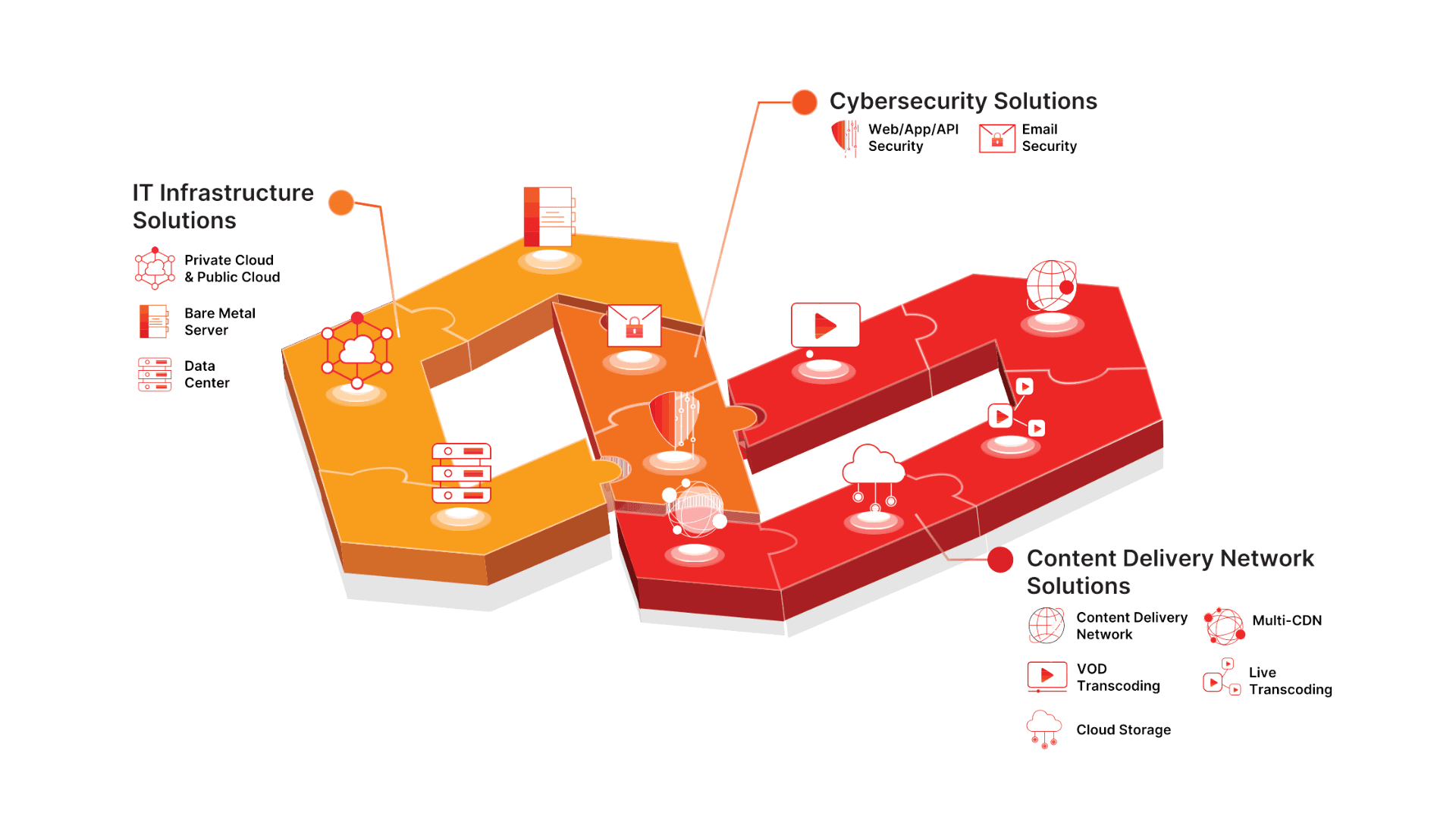1. Overview of Decree 53/2022/NĐ-CP
On August 15, 2022, the Government of Vietnam issued Decree 53/2022/NĐ-CP to provide detailed guidance on several articles of the 2018 Cybersecurity Law. The decree took effect on October 1, 2022, marking an important step in Vietnam’s legal framework for cybersecurity.
Decree 53 clearly defines requirements for data storage, identifies enterprises obligated to host servers in Vietnam, and outlines procedures for cooperating with competent authorities in cybersecurity investigations. Its overarching goal is to strengthen national data sovereignty, protect user information, and ensure greater transparency and safety in digital operations.
2. Scope and Applicable entities
Following its enforcement, one of the top concerns for organizations has been determining who must comply with the decree.
Decree 53 applies to:
- Vietnamese enterprises that collect, process, analyze, or store user data within the country.
- Foreign enterprises providing services in cyberspace to users in Vietnam, even without a local commercial presence. Examples include social networks, e-commerce platforms, cloud or digital content services.
Specifically, foreign businesses offering telecommunications, social media, online gaming, e-commerce, data storage, or video sharing services and having a substantial Vietnamese user base, may be required to establish a branch or data server in Vietnam to store information and cooperate with authorities when necessary.
3. Categories of data subject to localization
Articles 26 and 27 of Decree 53 specify three key categories of data that must be stored in Vietnam:
- Personal data of Vietnamese users such as name, date of birth, phone number, address, email, and bank account information.
- User-generated data, including access logs, search history, communication content, and behavioral interactions.
- User relationship data, such as friend lists, group memberships, and connection details on digital platforms.
Enterprises are responsible for storing and securing these data sets to prevent leakage, loss, or unauthorized exploitation.
4. Data storage and Security requirements
Businesses may choose their preferred method for local data storage, provided they meet two key principles:
- Real-time synchronization: data must be updated instantly to avoid discrepancies.
- Regular backups: data should be backed up at least once every seven days to ensure recovery capability in case of incidents.
Data storage systems must also implement multi-layer security controls, including:
- Data encryption
- Access control and identity management
- Network monitoring and intrusion detection/prevention systems (IDS/IPS)
These requirements align with global information security standards such as ISO/IEC 27001 and NIST, helping enterprises minimize data risks and maintain regulatory compliance.
.jpg)
5. Retention period and compliance timeline
According to the Ministry of Public Security’s guidance, enterprises are required to retain data for as long as they operate in Vietnam unless otherwise specified. In special cases, data must be stored for at least 24 months from the date of the official request.
For new businesses, the transition and system preparation period may extend up to 12 months to meet infrastructure, security, and monitoring requirements.
6. Relationship between Decree 53/2022/NĐ-CP and Decree 13/2023/NĐ-CP
In 2023, the Government introduced Decree 13/2023/NĐ-CP on personal data protection, effective July 1, 2023. Both decrees complement each other:
- Decree 13 governs the classification, collection, processing, and protection of personal data.
- Decree 53 focuses on data localization and enterprise responsibilities in cybersecurity compliance.
Businesses operating in Vietnam must adhere to both to ensure lawful, secure, and transparent data management.
7. Impacts on Businesses
Implementing Decree 53 brings notable changes to enterprise infrastructure, data strategies, and operations. Key impacts include:
- Increased costs due to investment in local storage infrastructure and security systems.
- The need to review user data policies to ensure lawful collection and processing.
- Higher cybersecurity requirements, demanding 24/7 threat monitoring and incident response.
- Enhanced customer trust and brand credibility through transparent data governance.
In the long term, Decree 53 serves as a foundation for strengthening Vietnam’s national cybersecurity posture and building a safe, trusted digital environment.
8. Practical Solutions for Compliance
To effectively comply with Decree 53, enterprises can adopt the following approaches:
- Deploy reliable local cloud infrastructure certified by international security standards.
- Apply robust encryption and role-based access control to prevent data breaches.
- Implement comprehensive DDoS protection and Web/App/API security monitoring.
- Conduct regular staff training on data security and regulatory compliance.
- Partner with experienced cybersecurity providers to ensure end-to-end protection.
9. VNETWORK – A trusted cybersecurity partner for compliance and beyond
Amid tightening data regulations, VNETWORK serves as a trusted partner helping both Vietnamese and global enterprises ensure full compliance with Decree 53. Its integrated cybersecurity ecosystem includes:
- VNIS: Advanced Web/App/API protection and acceleration platform with DDoS mitigation and intelligent WAF.
- EG-Platform: Enterprise-grade email security system preventing phishing, spam, and malware.
- VNCDN: One of Asia’s leading content delivery networks, improving website performance and user experience.
- VCLOUD: Local cloud storage platform ensuring that enterprise data is securely stored within Vietnam in accordance with data localization requirements.

With a seasoned team of cybersecurity engineers and a globally distributed infrastructure, VNETWORK empowers organizations to operate securely, stay compliant, and grow sustainably.
Conclusion
Decree 53/2022/NĐ-CP is not merely a legal obligation but also an opportunity for enterprises to modernize their cybersecurity architecture, enhance data governance, and strengthen customer trust.
Partnering with a technology leader like VNETWORK enables businesses to achieve full compliance while optimizing system performance and maintaining comprehensive protection.
Frequently Asked Questions (FAQ) About Decree 53/2022/NĐ-CP
1. What is Decree 53/2022/NĐ-CP?
It is a detailed implementation decree of the 2018 Cybersecurity Law, regulating data storage, localization, and enterprise cooperation with authorities to safeguard cybersecurity.
2. Which businesses are required to store data in Vietnam?
Any company providing online services that collect data from Vietnamese users, such as social networks, e-commerce platforms, online games, or cloud storage providers.
3. How does Decree 53 relate to Decree 13/2023/NĐ-CP?
The two are complementary. Decree 13 focuses on personal data protection, while Decree 53 regulates where and how that data must be stored within Vietnam.
4. Are foreign companies required to host servers in Vietnam?
Not all foreign enterprises are automatically obligated. Under Articles 26 and 27 of Decree 53/2022/NĐ-CP, foreign service providers are required to establish local servers or branches only upon written request from the Ministry of Public Security and if they offer services to Vietnamese users while collecting or processing their personal data.
The covered services include:
- Telecommunications
- Data storage and sharing
- Domain name services
- E-commerce, online payments, and intermediated payment services
- Online ride-hailing and transport platforms
- Social networks and digital media
- Online gaming
- Messaging, voice/video calling, email, and chat applications
In other cases, foreign enterprises are not required to localize their data. The minimum retention period, when mandated, is 24 months from the date of the official request.
5. How does VNETWORK support enterprises in meeting Decree 53 requirements?
VNETWORK provides a full suite of cybersecurity and local data hosting solutions including VNIS, EG-Platform, VNCDN, and VCLOUD—enabling businesses to achieve compliance, strengthen system security, and enhance operational performance.
